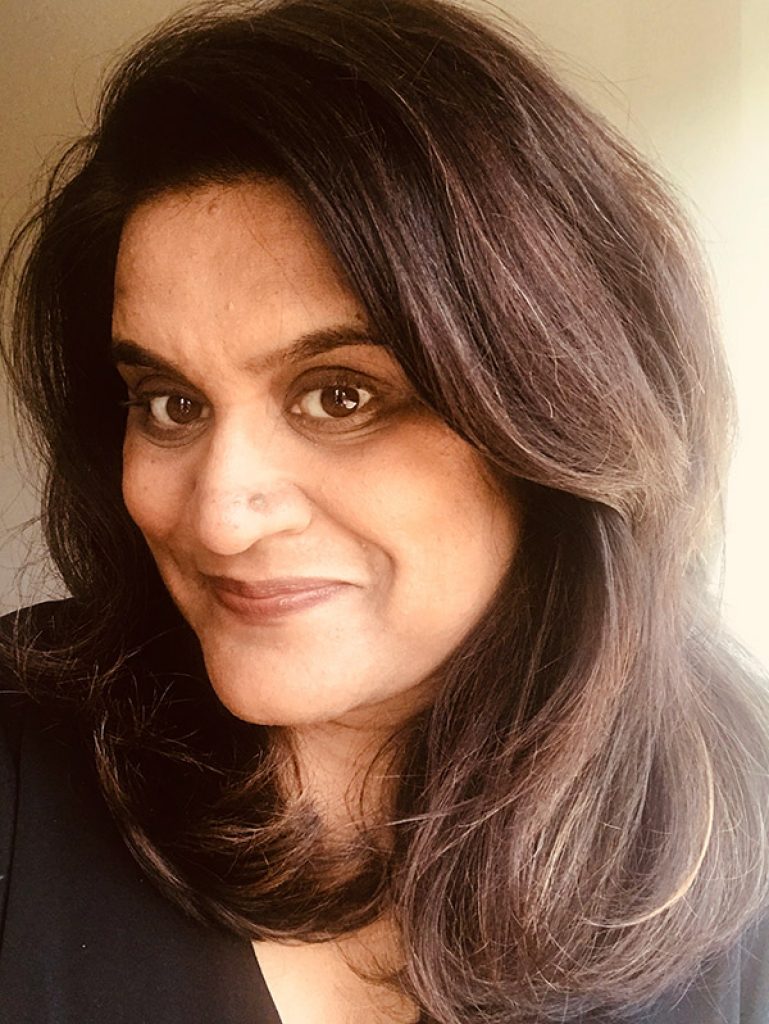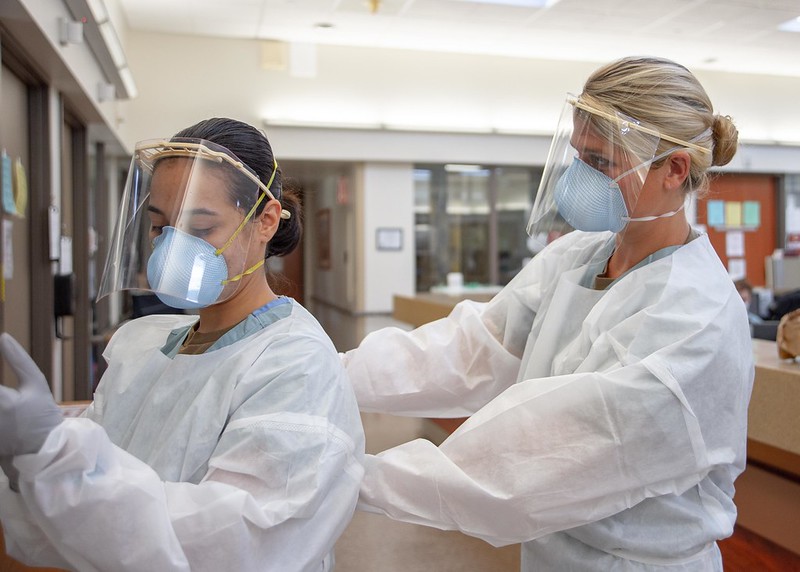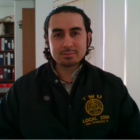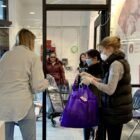Gov. Gavin Newsom said Tuesday that hospitals need to get ready for what he described as a potential “surge on top of a surge, arguably on top of another surge” of COVID-19 cases stemming from the holidays. In the Bay Area, hospitals still have some ICU capacity left, but health care practitioners are working hard to care for the influx of COVID-19 patients. The surge is leaving workers stretched thin and patients isolated.
“It’s really hard. They are alone,” said Dr. Monica Bhargava, a pulmonary critical care physician working at a county hospital in Oakland.
Sometimes patient care involves arranging for an interpreter, since many of Bhargava’s patients don’t speak English. Sometimes workers can arrange Zoom calls with the patient’s family, but many of her patients’ families are not active in their lives. For practitioners, safety protocols dictate that they spend their time with patients efficiently and then leave the room quickly.
“And then you step out, and every once in a while the patient will just give you a look and you know what they’re saying, which is just, ‘don’t go,’” she said.

At the same time, coronavirus vaccines are being distributed to frontline health workers, Bhargava among them. Her side effects, she said, were limited to a few days of fatigue. Now, she discusses the vaccine with her patients, fielding questions about its efficacy and development.
“I do think they bring up legitimate concerns,” she said, including worries that the vaccines were not tested on people with underlying health conditions. “And then I said, ‘no, actually, a significant number of patients had comorbidities in this trial, a significant percentage were overweight. You know, it wasn’t just young, healthy people.’”
Bhargava said the experience of scheduling and receiving her first dose of the Pfizer vaccine was surprisingly emotional.
“I didn’t know how much had been building up inside for so many months, and how long we’d all been waiting for this,” she said. “I felt profound relief and profound gratitude.”
A segment from our radio show and podcast, “Civic.” Listen at 8 a.m. and 6 p.m. Tuesdays and Thursdays at 102.5 FM in San Francisco, or online at ksfp.fm, and subscribe on Apple, Google, Spotify or Stitcher.










